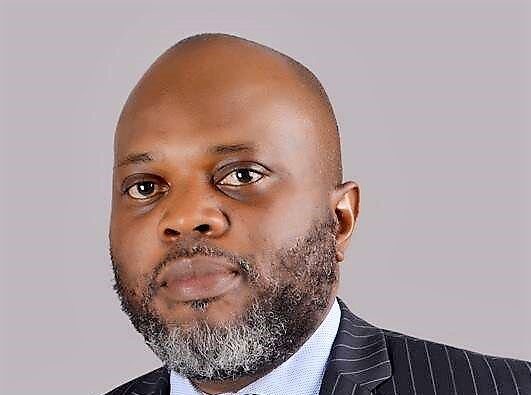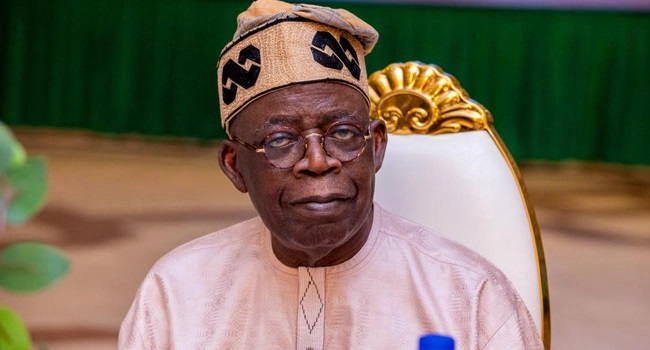After the state police, nothing left to demonize on the constitution, by 'Tope Fasua
Sometimes last month, President Buhari approved some critical constitutional amendment issues. Chief among these amendments was that state governments could now establish and run their own railroads, states could now generate, transmit, and distribute their own electricity, and states could now run their own correctional facilities (prisons) . One of the 16 amendments also granted autonomy to state legislatures and court systems.
Some of these issues are hotly debated on which many commentators have hung Nigeria's non-execution over its nearly 63 years of independence. There are millions who swear that Nigeria's problem stems from its constitution. They say the constitution is crippling and fraudulently crafted. They complain that the "We the people", which started the constitution, is a farce, because the constitution was drawn up by the military, which did not contact the Nigerian people. It does not matter if the much-maligned 199 constitution is merely a modification of a few sections of the 1979 constitution, which was drawn up by a duly constituted 1978 Constituent Assembly, and which itself only modified the 1963 constitution. Even with this latest round of amendments, some of these constitutional puritans insisted that Nigeria simply needed a new constitution and nothing less. I think I wrote in a previous article that many Nigerians suffer from a cognitive bias of always wanting life to be perfect – without necessarily putting in the work to make it so. This sudden and immediate expectation of perfection can be one of our biggest problems as a people today.
Of course, I disagree with these guys for several other reasons. First, when they complain that the constitution did not incorporate the wishes of the people, they often mean that THEY were not invited to the conferences where the constitution was drafted. Nigeria simply copied aspects of the United States constitution, especially with the “We the people…”. In the United States, too, the drafters of the original constitution did not seek the advice of the hoi polloi. They were aristocrats, military generals, landowners and others. Therefore, they wrote in this constitution that only landowners could vote. And they had to be men, not women. Blacks were enshrined in the first American constitution as two-thirds of human beings and therefore unworthy of the right to vote. Their numbers were small for the southern United States where they worked on the plantations, and it was on their backs that the idea of the Electoral College arose, to "balance" the votes so that even when human beings expressed their opinions, the will of a few powerful men will prevail. The writers of this idea believed there was something called "too much democracy". Imagine if it was Nigeria? That's part of why I urge that we don't destroy what we have today, because while it's partly problematic, it's also better than the best in many ways. Imagine that in 2013, a United States Supreme Court issued a decision that allowed some states to deprive former criminals, especially black people? But in Nigeria, our law is blind to your past. Every ex-felon, if they wish, is free to vote in Nigeria.
There are no perfect constitutions anywhere. I've been involved in drafting constitutions in the past, and I know that drafters would typically go from known to unknown. But in applying general principles to specific situations, complications usually arise, and it will be necessary to constantly modify constitutions as these problems and observations arise. Our benchmark, the United States, has changed its constitution 27 times and counting. I had proposed in the heat of calls for restructuring, that the best way to restructure was to insert a clause in the constitution that triggers a review every three or four years, with the amelioration of the lot of the majority and the more vulnerable in spirit. What the Buhari government did with these amendments confirmed my thoughts which I put in an article titled “A Brief History of Restructuring in Nigeria”. Also, it is important to note that it is simply impossible for EVERYONE's opinions to matter when writing a constitution. At best, people will have representatives, but only a fraction of what each person wants will end up in the final document.
Let's take a brief look at the impact of the main amendments mentioned above. Many Nigerians believe that once we fix the electricity, the economy will explode. I am not particularly optimistic about this prospect as I have not seen Nigerians' predilection for deep thinking, research and long-term endeavors that transform the face of a nation. But it's a remarkable amendment nonetheless and at least we can see a scenario that we'll begin to transition through...

Sometimes last month, President Buhari approved some critical constitutional amendment issues. Chief among these amendments was that state governments could now establish and run their own railroads, states could now generate, transmit, and distribute their own electricity, and states could now run their own correctional facilities (prisons) . One of the 16 amendments also granted autonomy to state legislatures and court systems.
Some of these issues are hotly debated on which many commentators have hung Nigeria's non-execution over its nearly 63 years of independence. There are millions who swear that Nigeria's problem stems from its constitution. They say the constitution is crippling and fraudulently crafted. They complain that the "We the people", which started the constitution, is a farce, because the constitution was drawn up by the military, which did not contact the Nigerian people. It does not matter if the much-maligned 199 constitution is merely a modification of a few sections of the 1979 constitution, which was drawn up by a duly constituted 1978 Constituent Assembly, and which itself only modified the 1963 constitution. Even with this latest round of amendments, some of these constitutional puritans insisted that Nigeria simply needed a new constitution and nothing less. I think I wrote in a previous article that many Nigerians suffer from a cognitive bias of always wanting life to be perfect – without necessarily putting in the work to make it so. This sudden and immediate expectation of perfection can be one of our biggest problems as a people today.
Of course, I disagree with these guys for several other reasons. First, when they complain that the constitution did not incorporate the wishes of the people, they often mean that THEY were not invited to the conferences where the constitution was drafted. Nigeria simply copied aspects of the United States constitution, especially with the “We the people…”. In the United States, too, the drafters of the original constitution did not seek the advice of the hoi polloi. They were aristocrats, military generals, landowners and others. Therefore, they wrote in this constitution that only landowners could vote. And they had to be men, not women. Blacks were enshrined in the first American constitution as two-thirds of human beings and therefore unworthy of the right to vote. Their numbers were small for the southern United States where they worked on the plantations, and it was on their backs that the idea of the Electoral College arose, to "balance" the votes so that even when human beings expressed their opinions, the will of a few powerful men will prevail. The writers of this idea believed there was something called "too much democracy". Imagine if it was Nigeria? That's part of why I urge that we don't destroy what we have today, because while it's partly problematic, it's also better than the best in many ways. Imagine that in 2013, a United States Supreme Court issued a decision that allowed some states to deprive former criminals, especially black people? But in Nigeria, our law is blind to your past. Every ex-felon, if they wish, is free to vote in Nigeria.
There are no perfect constitutions anywhere. I've been involved in drafting constitutions in the past, and I know that drafters would typically go from known to unknown. But in applying general principles to specific situations, complications usually arise, and it will be necessary to constantly modify constitutions as these problems and observations arise. Our benchmark, the United States, has changed its constitution 27 times and counting. I had proposed in the heat of calls for restructuring, that the best way to restructure was to insert a clause in the constitution that triggers a review every three or four years, with the amelioration of the lot of the majority and the more vulnerable in spirit. What the Buhari government did with these amendments confirmed my thoughts which I put in an article titled “A Brief History of Restructuring in Nigeria”. Also, it is important to note that it is simply impossible for EVERYONE's opinions to matter when writing a constitution. At best, people will have representatives, but only a fraction of what each person wants will end up in the final document.
Let's take a brief look at the impact of the main amendments mentioned above. Many Nigerians believe that once we fix the electricity, the economy will explode. I am not particularly optimistic about this prospect as I have not seen Nigerians' predilection for deep thinking, research and long-term endeavors that transform the face of a nation. But it's a remarkable amendment nonetheless and at least we can see a scenario that we'll begin to transition through...
What's Your Reaction?






















